Tech
Sign up for our newsletter
We summarize the week's scientific breakthroughs every Thursday.
-
 Computing
Computing‘The Imitation Game’ entertains at the expense of accuracy
Inaccuracies weaken “The Imitation Game,” an otherwise enjoyable film about Alan Turing breaking the Enigma code during World War II.
By Andrew Grant -
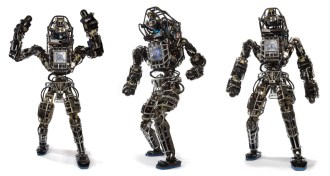 Tech
TechDesigning robots to help in a disaster
Ideally, robots could take over for human crews in disaster zones. But seemingly simple tasks, such as walking, communicating and staying powered up, still pose big challenges.
By Meghan Rosen -
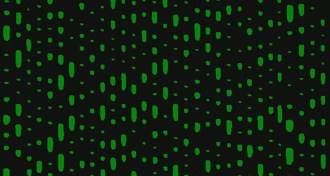 Tech
TechBlu-ray Discs get repurposed to improve solar cells
Polymer solar cells capture more sunlight when they are imprinted with movies’ and TV shows’ Blu-ray Disc etchings.
By Andrew Grant -
 Quantum Physics
Quantum PhysicsMilestone algorithm runs on quantum computer
An algorithm proposed two decades ago that demonstrated the benefit of using quantum mechanics to solve certain problems has finally been run on a quantum computer.
By Andrew Grant -
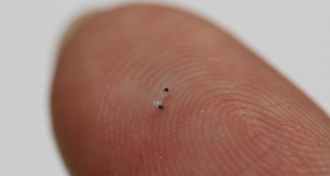 Tech
Tech‘Micro-scallop’ takes a stroke toward swimming in blood
A tiny device that looks like a scallop flaps its way through viscous fluids, something that has been a challenge in the past.
-
 Neuroscience
NeuroscienceA species of invention
From early humans painting on cave walls to modern-day engineers devising ways to help people move better, the drive to innovate is simply part of who humans are.
By Eva Emerson -
 Math
MathSpirals inspire walking aids for people with disabilities
Long admired for their beauty, spirals have inspired a shoe that may help disabled people walk. The shapes make for a better crutch and an entertaining skateboard as well.
-
 Tech
TechSheath helps ‘aqua-hamster’ survive underwater
Scientists hoped a membrane invented in 1964 would let submarines pull air from seawater.
-
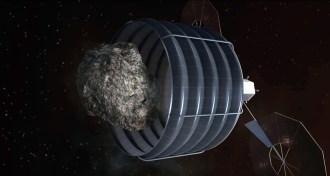 Science & Society
Science & SocietyAsteroids closer to home may get us to Mars
NASA should abandon its attempt to bring a space rock into lunar orbit and instead scrutinize ones already whizzing by Earth, one scientist argues.
-
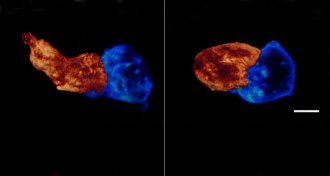 Tech
TechNew microscope gives clear view inside cells
By splitting beams of light, a new microscopy technique can capture activity inside a cell.
By Meghan Rosen -
 Science & Society
Science & SocietyE-commerce sites personalize search results to maximize profits
Travel and retail websites alter search results depending on whether consumers use smartphones or particular web browsers.
-
 Planetary Science
Planetary Science‘Mars Rover Curiosity’ chronicles robot’s journey
Engineer Rob Manning recounts the decade of victories and setbacks that preceded Curiosity’s landing on Mars.